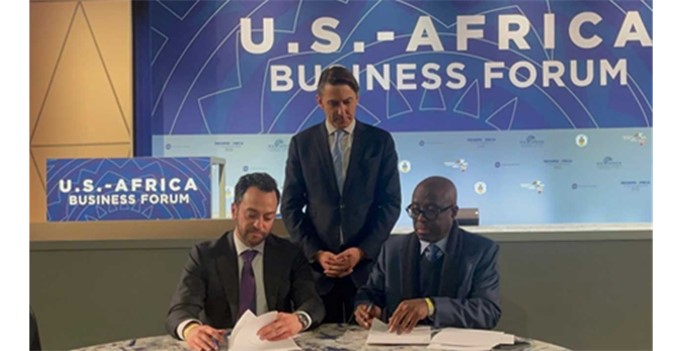
US EXIM Approves $900MM Loan for Angolan Solar Mini-Grids
We are proud to share that the Export-Import Bank of the United States has recently approved a $900 million loan to Angola for the installation of 2 solar mini-grids from AfGS partner, Sun Africa. The project will generate more than 500MW of renewable power and help address critical energy needs in Southern Angola. The Angola solar mini-grid project is EXIM’s largest renewable energy investment to date and signals the beginning of a stronger economic relationship between Angola and the US. “We are proud to take part in this important project, which will increase access to electricity in Angolan communities using clean energy technology,” says US EXIM chair and president, Reta Jo Lewis, Esq.,

AfGS to Partner with Bechtel.org and ETG in Zambia
AfricaGlobal Schaffer, along with Bechtel Corporation and Export Trading Group’s Empowering Farmers Foundation, is excited to partner with USAID and their private sector matching parties to increase food security in Zambia. Together, we will build a series of Smart Integrated District Aggregation Centers in Zambia over the next 2 years. The aggregation centers will increase the supply and quality of maize from Zambia to help relieve food shortages in the country. The centers will reduce post-harvest losses, thus increasing the supply of maize and the harvest value for Small Holder Farmers.

AfGS Client Announces $1.5B Deal with Govenment of Nigeria
AfGS client Sun Africa recently signed an EPC contract with the Government of Nigeria for 5 gigawatts of solar generation and 2.5 gigawatts of battery storage. Sun Africa is the largest US renewable energy company operating in Africa with a focus on solar PV technology. US EXIM Bank will a $1.5 billion loan to finance the development with the Ministry of Industry, Trade, and Investment of Nigeria. This development will substantially assist Nigeria to achieve its goal of 30 gigawatts of installed power generation, 10 gigawatts of which will be from renewable sources. Nigeria currently has only 16 gigawatts of installed energy generation; thus, when complete, Sun Africa will provide over 20% of Nigeria’s energy generation.

Partnership for Global Infrastructure and Investment
SunAfrica and AfGS were honored to be named in the G7’s Partnership for Global Infrastructure and Investment. The initiative will help close the infrastructure gap that exists in many developing nations while also tackling the climate crisis, advancing IT technologies, increasing gender equality and equity, and improving health infrastructure. SunAfrica and AfGS’s two billion dollar Angolan Solar Project is a flagship project of the Partnership for Global Infrastructure and Investment which will assist Angola in generating 70% carbon-free power by 2025. This project will provide Angola with 370 MW of power and feature the largest solar power plant in Sub-Saharan Africa.

Africa-USA Now Media Series
AfGS is proud to be a production partner on Africa-USA Now, new 10-part digital series focusing on the intersection of Africa and the US. The show creates a platform for discussion and debate on issues of mutual interest and was created with two aims: to help the US better engage with Africa, and to help Africa better engage with the US. Tune in on africausanow.com, on YouTube, Spotify, Apple Podcasts or Google Podcast.
While the 20th century saw immense and rapid economic growth in Asia, the 21st century may well be characterized by explosive economic growth in Africa. Africa is the fastest-growing region on earth by all metrics, and that growth is likely to accelerate. The continent is now on the world’s center stage, and the US will have to take another look at its approach to African policy to stay relevant. What is clear is that Africa is no longer asking for a place at the table. Rather, it’s already seated. On the African side, many have given up on the US, noting low levels of American investment that often come with too many strings attached and an approach based more on hierarchy than partnerships. The continent has plenty of other alternatives, most notably China. But whether the US increases engagement or not, Africa cannot ignore the US as the global superpower impacts other governments, multilateral institutions, the media, financial markets, credit agencies, and more. As Africa moves forward, the continent needs to understand the US and its global influence as a spoiler or kingmaker.
Africa-USA Now provides a space for dialog and discussion and promotes true partnerships between the US and Africa.
